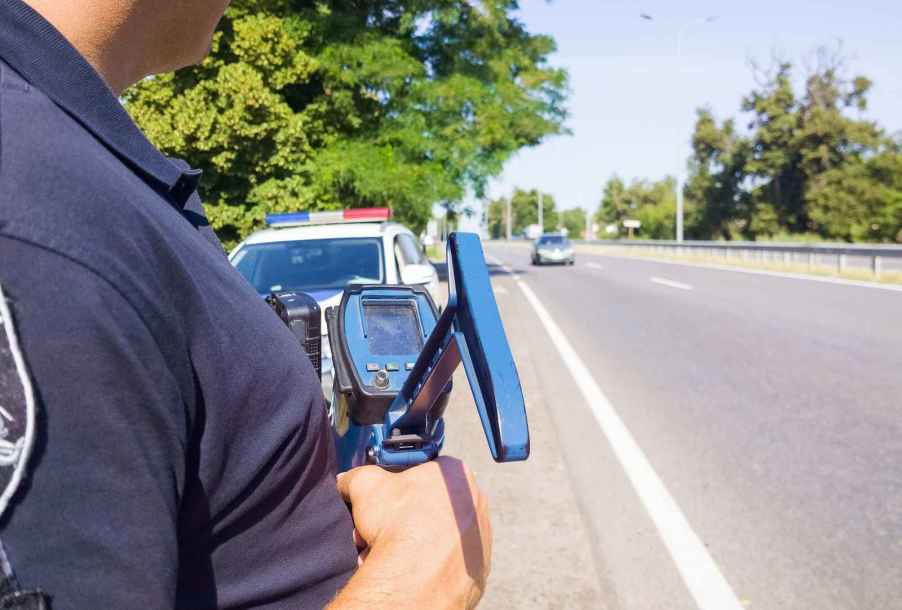
Is it illegal to flash your lights to warn other drivers of a nearby police officer?
If you’ve ever driven past a police car monitoring traffic and felt tempted to flash your lights at oncoming drivers, you’re not alone. I’ve definitely seen drivers do this to warn folks about nearby police presence, like a perceived speed trap. But is this actually illegal?
In general, it’s perfectly legal to communicate with other drivers using your lights. In fact, these days, courts consider this a constitutionally protected action.
It wasn’t always this way, though.
Up until about a decade ago, drivers occasionally faced citations (or worse) for attempting to warn other drivers of nearby police presence. While hundreds of drivers just accepted the ticket and paid up, a few started arguing the point in court.
In all the cases I read from 2004 to 2014, across multiple states, the court favored the driver. While authorities argued that the action could “sabotage” police attempts to catch and punish illegal driving behavior, courts decided that these drivers were actually protected under the First Amendment.
Back then, the ACLU often stepped in to publicly support drivers facing various punishments for flashing their lights to warn other drivers.
In one instance, the executive director of Missouri’s ACLU confidently stated, “The police cannot retaliate against drivers who have done nothing wrong and are simply exercising their right to communicate with other drivers.” The court agreed.
As such, if a driver isn’t speeding, being reckless, or otherwise doing anything “wrong,” communicating briefly with vehicle lights isn’t a good enough reason to pull them over and issue a citation.
Despite the general vibe that flashing your lights to warn other drivers is legal, there were “loud” opponents of these court decisions.
In 2014, a WaPo journalist published an opinion piece explaining that they considered the behavior “Crime-Facilitating Speech.” They argued that drivers might cease breaking traffic laws only until out of police eyeshot, for instance.
There also seem to be some tricky loopholes to whether headlight flashing is acceptable in certain areas. For instance, some states have laws that make high beam use legal only under specific circumstances. Still, a police officer would really need clear justification for “high beam misuse” to pull you over and issue a valid citation that could be argued in court.
Overall, it’s up to you whether you want to communicate with other drivers using your lights. Legally, warning others of police presence is decidedly no different than flashing your lights to let another driver know to go ahead first, for example.



